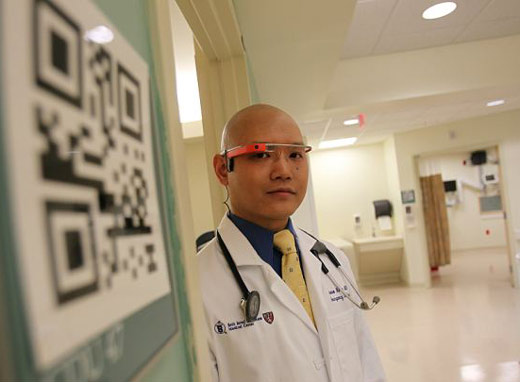Boston researchers have developed a supercomputer they claim can predict with 96% probability if a patient is about to die.
波士顿的研究人员发明了一种超级计算机,据说能预测病人是不是快要死亡,准确性高达96%。
The Beth Israel Deaconess Medical Center has linked monitors on its patients to the system, which is said to be better at spotting illnesses than human doctors.
贝斯以色列女执事医疗中心将病人身上的监测器与该系统相连,据说这样可以比医生更准确地发现病情。

It is loaded with information about more than 250,000 people from the past 30 years, drawing on this data to make speedy diagnoses.
该系统中拥有近30年来超25万位患者的信息,并利用这些资料做出快速的诊断。
This speedy disease recognition could allow a quick cure, potentially saving lives as well as predicting patients' imminent demise.
这种快速的疾病诊断方法既可以预测病人是否即将死亡,也可以使患者尽早接受治疗,从而可能挽救患者的生命。
'The big picture is that we're trying to harness the power of big data,' said Dr Steve Horng, who is leading the project.
“重点是,我们正在尽可能地利用大数据的力量。”该项目的负责人史蒂芬·黄博士说。
'If you come in, we can take everything we know about you, both in your current visit and previous visits.
“如果你来看病,我们可以向你展示我们所知道的所有关于你的情况,包括你现在和之前看医生的记录。”
'We can compare that to other patients with similar conditions, and predict diagnoses you might have in the future.'
“我们可以将你的情况和其他症状相似的患者进行对比,预测出你将来可能患的疾病。”
It collects data on patients every three minutes, measuring everything from oxygen levels to blood pressure.
该系统每三分钟就收集一次患者的信息,测量氧气含量、血压等各项指标。
The groundbreaking research is the first time the 'big data' principles have been applied in this way.
这一突破性的研究是大数据理论首次以这种方式运用到该领域。
Dr Steve Horng told the BBC: 'We can predict with 96% confidence when patients [are facing a high] probability of dying,'
史蒂芬·黄博士告诉英国广播公司说:“我们可以判断出患者很可能即将死亡的时间,准确率高达96%。”
'If the computer says you're going to die, you probably will die in the next 30 days.'
“如果计算机表示,你即将死亡,那么你很可能活不过一个月了。”












